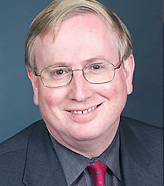In this article, I provide a brief outline of the discussion of two timely topics: whether antidepressants “really work” and whether antidepressants “can cause suicide.”
Clinicians have successfully used antidepressants to treat patients suffering from depression for 50 years. Kirsch and colleagues published in 2008 in PLoS Medicine a meta-analysis of the data held by the Food and Drug Administration (FDA) from 35 randomized, placebo-controlled trials of four newer antidepressants in the acute treatment of major depression. The authors claimed that although antidepressants are statistically superior to placebo, the magnitude of the drug-placebo difference is small and that these differences were clinically relevant only in patients with severe depression.
Surprisingly, the paper received considerable attention in the popular press, including radio and front-page newspaper coverage. The focus on questions about whether antidepressants really worked needlessly upset patients and their families. What has not received equal coverage in the popular media is that many experts in the field have argued that the analysis by Kirsch and colleagues was seriously flawed.
Indeed, Kirsch’s analysis was flawed because it relied upon unusual statistical techniques biased against antidepressants. Horder and colleagues published in the Journal of Psychopharmacology in 2010 a reanalysis of the same data using more appropriate methods and found substantially different conclusions. Furthermore, the efficacy of antidepressants is documented by the experience of clinicians worldwide and the millions of patients who have benefited from taking them.
Some have questioned whether treatment with the SSRIs and other antidepressants can induce suicidal ideation and whether they worsen existing suicidal ideation. Although the totality of the reliable scientific evidence indicates that SSRIs and other antidepressants do not cause suicide (as discussed below), the FDA has required that all antidepressants contain a black-box warning that they are associated with “suicidality” in children, adolescents, and young adults up to age 24.
Clinicians should be aware of two important points: (1) The FDA’s black-box warning does not indicate that antidepressants increase the risk of suicide in anyone or that they increase the risk of suicidal thinking or behavior in patients aged 25 and older; and (2) although the FDA used the concept of “suicidality” as a proxy for completed suicide, they are not the same. “Suicidality” has been criticized as grossly overestimating the risk of suicide and as not being as clinically useful as more specific terminology such as ideation, behavior, attempts, and suicide.
Hammad and colleagues published in 2006 a study in the Journal of Clinical Psychopharmacology that analyzed the FDA database of 207 trials, including a total of 40,028 patients, and concluded that antidepressants were not associated with an increased risk of completed suicide among patients with major depressive disorder or various anxiety disorders. Other investigators found that antidepressants were associated with a significant reduction in suicidal behavior.
In a comprehensive review on methodological and statistical approaches to the design and analysis of over 2,000 studies of antidepressants and suicidal events (thoughts, attempts, and completion), Gibbons and Mann published a study in 2011 in the journal Drug Safety that concluded that “there appears to be little evidence that drugs increase the risk of suicide and related behaviour” and that “numerous lines of evidence in adults clearly demonstrate that inadequate treatment of depression (pharmacotherapy and/or psychotherapy) is associated with increased risk of suicidal behaviour.”
A substantial body of evidence suggests that increases in the use of antidepressants have been accompanied by decreases in suicide rates in various countries. After examining the association between antidepressant medication prescriptions and suicide rates at the county level across the United States broken down by age, sex, income, and race for the period 1996–1998, Gibbons and colleagues reported in 2005 in the Archives of General Psychiatry that prescriptions for SSRIs and newer non-SSRI antidepressants were associated with lower suicide rates (both within and between counties). On the contrary, there is good reason to believe that the FDA’s warnings have had the effect of deterring children and young adult patients from seeking treatment (and their physicians from prescribing antidepressants). As a consequence, there has been a reversal of the historic downward trend in reducing suicides through antidepressant use in these populations.
In closing, antidepressants do not cause suicide, but are protective against suicide, as would be expected from a medication that effectively treats depression, which is itself a major cause of suicide.
Anthony J. Rothschild, M.D., is the Irving S. and Betty Brudnick Endowed Chair and Professor of Psychiatry and director of the Center for Psychopharmacologic Research and Treatment in the Department of Psychiatry at the University of Massachusetts Medical School. He is the author of The Evidence-Based Guide to Antidepressant Medications (American Psychiatric Publishing). The book may be ordered at www.appi.org/SearchCenter/Pages/SearchDetail.aspx?ItemId=62405. APA members are eligible for a discount. 

